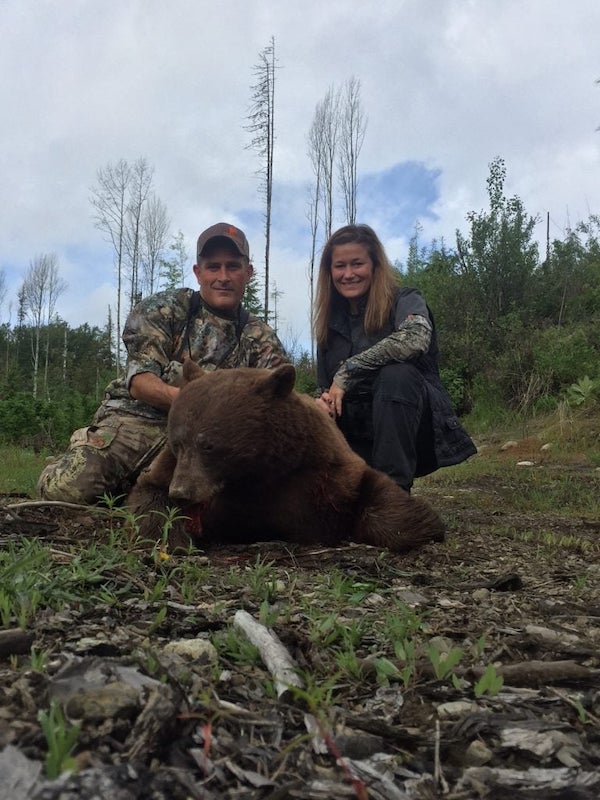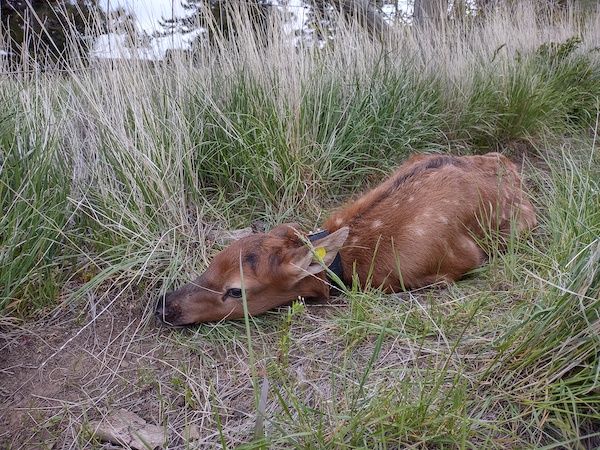
WA BHA Asks Commission To Abide By Game Plan On Spring Bear Hunt
With the Washington Fish and Wildlife Commission set to make a possibly momentous decision against the limited-entry spring black bear hunt this Friday (not to mention second Blue Mountains cougar tags), the state chapter of Backcountry Hunters and Anglers is calling on the panel to abide by elements in WDFW’s standing game management plan.
In a bid to save the season, the organization this week sent the commission a letter asking it to follow goals, oversight structures, management direction and stakeholder consultations outlined in the document’s executive summary and first couple chapters as they apply to spring bear hunting policies.

“The Game Management Plan affords the commission the ability to adopt major hunting seasons every 3 years and the [sic] make minor adjustments annually. Nowhere however does the GMP clearly provide the commission the opportunity to cancel a long-standing hunting opportunity without following standard rule-setting procedures. Cancelling the spring bear season is not only ahistorical but doing so does not demonstrate adherence to the existing game management plan,” the 3-plus-page July 11 letter states.
While the commission in March scrubbed the 2022 edition of the hunt on a 5-4 vote, beforehand it unanimously agreed to essentially more fully consider the season and policies ahead of an expected October decision on 2023.
But this Friday, members “may revise directions” it gave WDFW staffers around that latter vote, and that has alarm bells going at BHA’s Washington chapter.
“The public has not been adequately informed by the commission about the potential finality of your decisions on July 15th,” the organization states. “This is perhaps most succinctly expressed in the Game Management Plan’s first sentence in the public involvement section that ‘active public involvement is important for successful planning.’ We encourage the commissioners to carefully consider if expeditiously reaching a spring bear decision at this time, which will have a lasting impact for wildlife and recreation, is in keeping with the need to properly engage the public and all stakeholders.”
The letter also raises the specter of litigation around the possible removal of the season.
The hunt traces back to the 1970s and has been used to address bear timber damage, bruin-human conflict, elk and deer neonate survival, and provide hunting opportunity. Tag numbers peaked in the 800s in the mid-2010s and declined to 668 last year, spread between the Blue Mountains, Northeast Washington, North Cascades, Kitsap Peninsula and coast.
In December 2020 the season came under fire but weathered a court challenge to occur in 2021, but a vote last November paused this spring’s hunt, and a hunter-petition-driven revote failed in late winter.
“We look forward to a spring bear decision that upholds the integrity and good governance of this commission, as well as a public, transparent, and deliberative process that strengthens the commissions relationships and with volunteers, funding partners, recreationists, and concerned citizens,” Backcountry Hunters and Anglers writes.
Their letter takes an even, measured tone around an issue that has raised extreme emotions, as have a couple others in recent weeks and months – wolves and cougars.
Things have become so fraught that last week Chair Barbara Baker said she’s heard from several members of the public that “it’s getting weird,” leading her to outline a new circuit breaker, per se, she is going to use – stopping the meeting if someone is going over the line and then discussing with members whether it was appropriate to have halted things.
“When our public starts talking about our behavior instead of our positions, I think it’s time to step in and ratchet it down a bit,” Baker said.
Also trying to calm things down, Mitch Friedman of Conservation Northwest.
“Culture war hurts wildlife. That’s why I shudder to see the escalating enmity and dysfunction within Washington’s Fish and Wildlife Commission and some advocates seeking to influence it,” he wrote in a blog yesterday. “On controversies like the spring bear hunt, the wolf rule, and elk management in the Blue Mountains, I may share perspectives of some of the energized advocates and commissioners, but their approach is sure to fail us and the wildlife we love.”
There can be no doubt CNW is predator friendly, but it’s also shown itself to be much more pragmatic than others in the carnivore advocacy world who also seem to have the Governor’s Office’s ear in regards to management and recent commission appointments.
Friedman – a member of WDFW’s big-net Budget and Policy Advisory Group – argues that the future for Washington wildlife is to include all stakeholders under a big tent, incorporating everyone’s shared passion for protecting the state’s habitat and diversity.
And he shares some advice for talking to the other side: “First and foremost, avoid poking the bear. If you don’t know how your language or tactics might inflame others, you might not be ready to serve nature effectively. More important, try to listen to those with opposing views and explore how their interests might be compatible with yours. Finally, find some common ground.”
A couple weeks ago while I was covering a Snake River dam breaching rally in Portland, Liz Hamilton of the Northwest Sportfishing Industry Association and I unexpectedly found ourselves at a booth run by vegan pinniped lovers. We literally could not have been more different from them (I couldn’t figure out if biting my tongue would be offensive in and of itself to these non-meat eaters, so I just kept my yap shut and nodded my head), but here they were advocating – in part – for the shared goal of more salmon. Thank you, and on to the next booth we went.
Ahh, if only things were so simple.
Things are so polarized right now on the Washington Fish and Wildlife Commission because so much is so suddenly at stake. It feels like it’s all building to a head this month and it’s all chips in on Friday.
Last week, the commission shied away away from the line by not adopting shackling wolf-livestock rules, thanks to Baker joining Vice Chair Molly Linville and Commissioners Jim Anderson, Don McIsaac and Kim Thorburn.
Besides spring bear, this Friday the citizen panel will also make a decision on whether to allow hunters to take a second mountain lion to reduce predation on the Blue Mountain elk herd, which is well below objective and unable to rebuild itself due to high calf losses documented by a radio collar survey last year and aerial surveys in late winter.

The rule change wouldn’t actually change the overarching harvest guidelines of 18 to 22 of the big cats, but some commissioners have balked at WDFW’s judgement that the herd is at risk or that cougars should be killed to help it rebound.
This will be a decision to watch very closely, along with spring bear.
